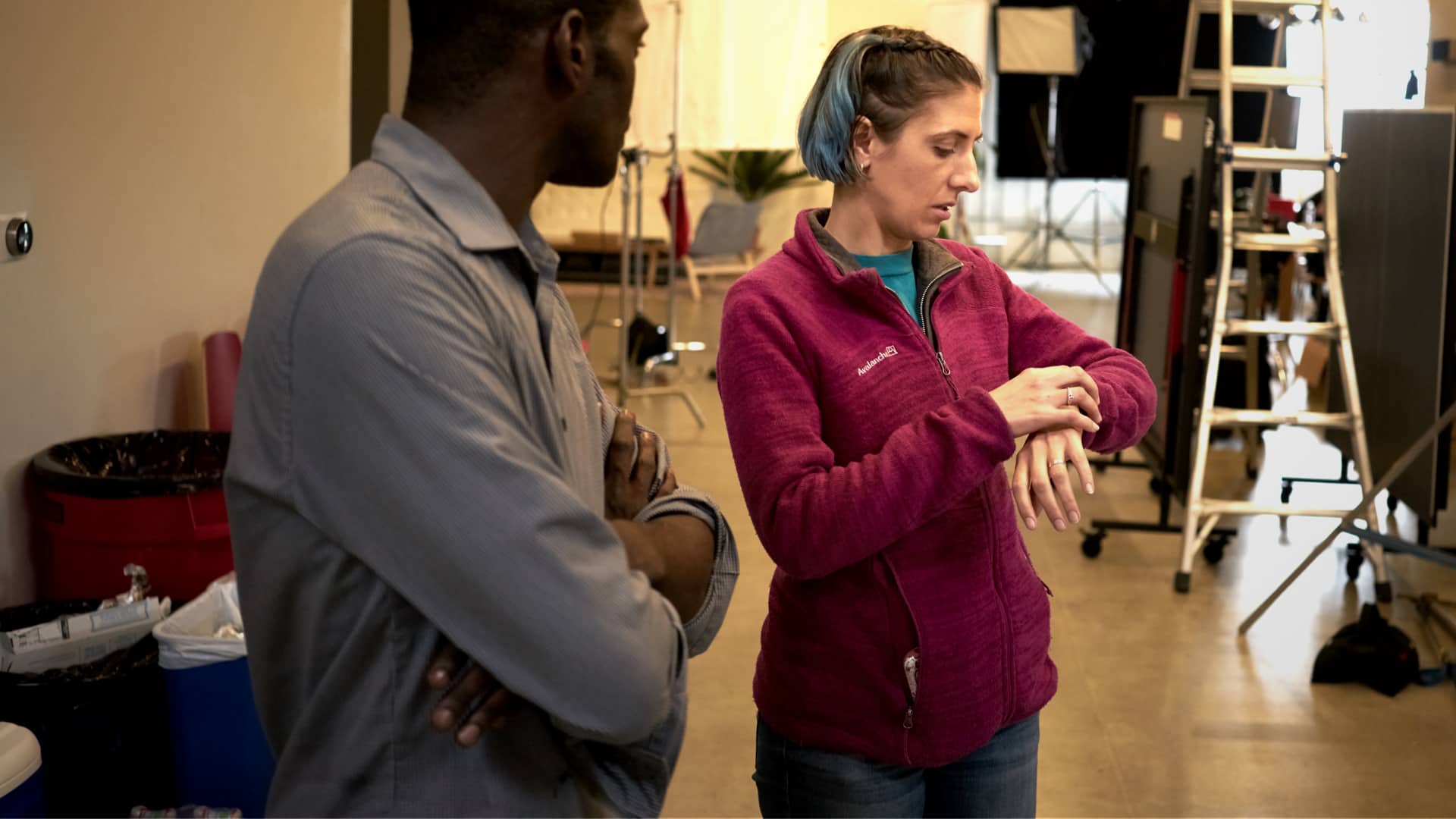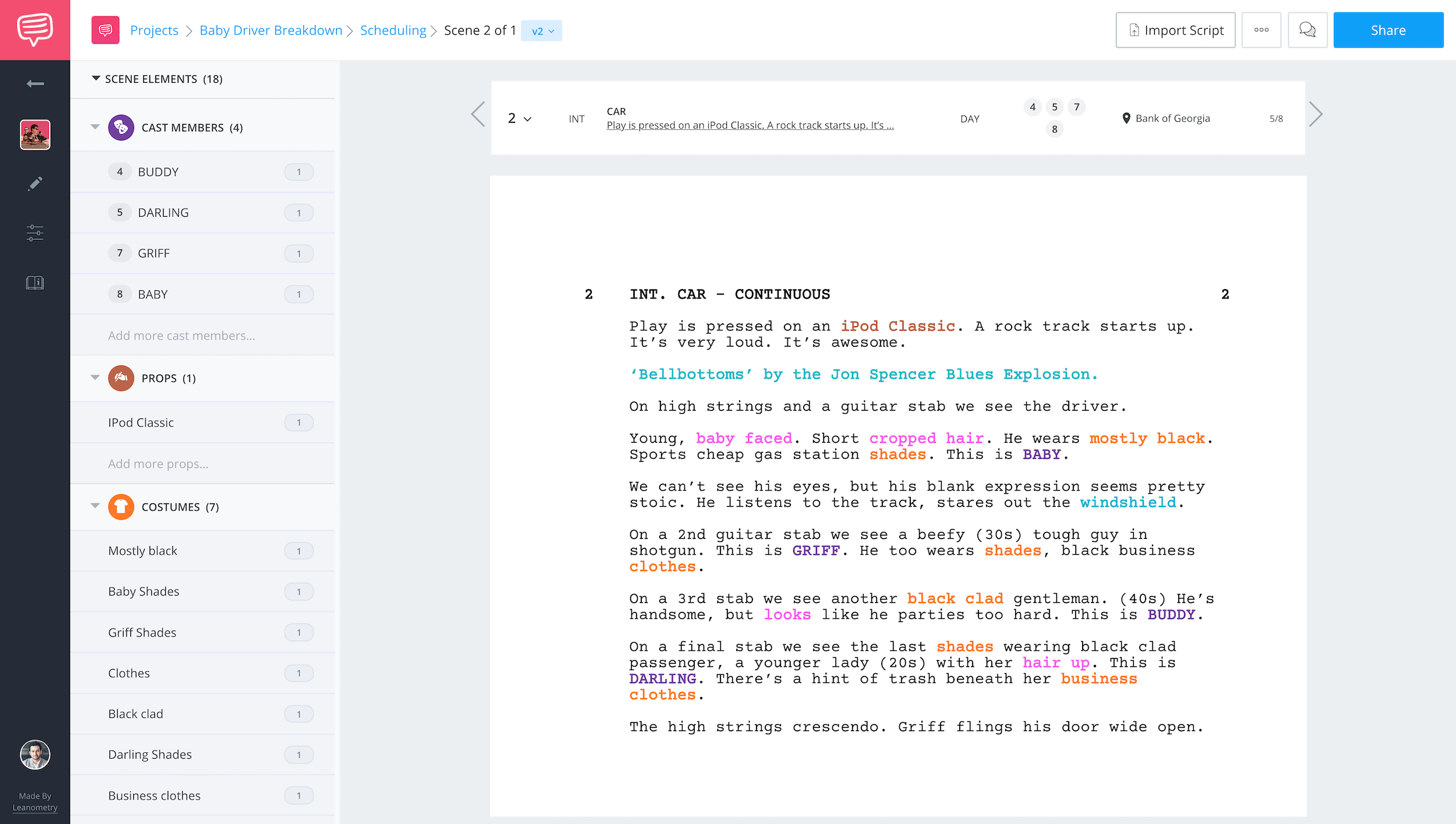You may have a basic idea of what a line producer is, but there are so many different kinds of producers, are you really sure? It takes a minute to know the ins and outs, and the best way to learn is always to do. But if you’re a little hesitant to jump right into the role, we outlined some basic responsibilities so you can confidently answer “what does a line producer do?” Let’s get into it.
Line Producer Duties
What exactly does a line producer do?
If you’re coming from our previous post on what is a line producer, you know that a line producer is a producer that oversees all operations and logistics for a film, from the pre-production phase through delivery of the completed work.
But what exactly do they do?WHAT IS A LINE PRODUCERS JOB
What does a line producer do?
A line producer oversees all logistics for a production. They manage all of the operations in the pre-production stage, production, and post-production stage. They are responsible for generating and continuously reviewing the budget “line-by-line.” He or she takes responsibility over the financial aspects. They also act as a liaison between the crew and the higher level producers..
LINE PRODUCING BEST PRACTICES
- Stay organized to stay efficient
- Don’t wait for someone to come to you, meet with departments everyday
- Track everything, and keep digital copies (tell your coordinators and ADs to do the same)
- Use production management software to store documents/shot lists or any other pertinent information all in one place
As mentioned above, this kind of producer is involved at the ground level in every phase. Let’s breakdown those phases and outline what a line producer does at every stage.
Initial Duties and Responsibilities
Line producing in pre-production
Let’s take a look at the starting line for these producers: pre-production.
The early stages are an exciting time so it’s important to have a strong understanding of the basics and where to begin.
What should you do first?
Set up a production company
Obviously, this isn’t always applicable as you could be working for an existing company. But sometimes you will have to figure this out.
A commercial, tv, or film project is often thought of as a separate business. Why? Well a limited liability company, (an LLC), limits investor liability to the LLC itself. Essentially this just means it protects partners on the project from financial loss later on.
This new company will include some variant of your project’s name.
Tasks associated: Open a bank account, find a space to work, make a brand new email address. Make sure you have a full understanding of insurance works or get an insurance broker.
Hire a lawyer if necessary, (it’s always a good idea if you can swing it, but unnecessary if it’s low-budget). Finding a payroll company is also a good idea if it makes sense to your production.
Break down the script
The first AD does this initially, but if they have any questions, they’d go to you, so you better know how to do it too. Learn more about how to break down a script here.
It also isn’t a bad idea to use production management software because you’ll have to coordinate with the first AD.
We threw a script into StudioBinder’s production software to show you what it looks like and how you can collaborate with the team.
Click to view the breakdown
The first AD will identify all of the elements needed in each scene.
You’ll then go over it and note the timing and locations for each scene, so you can better schedule it.
That leads us to the next task.
Create a shooting schedule
This is where you and the 1st AD will take the breakdown information and put it into strip boards, arranging by location, how long certain scenes will take, talent needs, etc. Learn more about how to use strip boards to create shooting schedules, here.
Budget the film
You might have put together a loose budget to secure funding for a film, or maybe you haven’t looked at it at all, either way, now’s the time. Look at every aspect of the production - from the script to editing, and write it down. Learn how to budget a film here.pro tip
Be aware of contingencies. A good rule of thumb is to set aside 10 percent of the total budget for extra expenses that come up, (and trust me, they'll come up).
Hire your crew
Self-explanatory. You’ll do this pretty early. Hire from references or well known job boards. Production Beast is a great tool.
Line producer and production managers are usually the same thing, so if you can afford to hire a production manager, they can hire. But if not, start with your production coordinator and first AD, to assist you.
Then the real hiring begins.
Sometimes the director already has a director of photography (DoP) they like to work with, but here is a list of hiring importance: DoP, Location Manager, Production Designer, Key Wardrobe, Key Make-Up, Hair, Sound Mixer, Editor.
*Ideally, casting is already done. If not, a casting director comes first.
Location scouting
Let the hunt for locations begin. Your location manager should handle this, but they will likely come to you for approval.
Wrapal, Peerspace, and Giggster, are all reliable location finders.
Secure Film Equipment
Your job is to get rates and find the best deals for renting cameras, grip trucks, tables and chairs for meal breaks. Usually you assign this to a production coordinator, or manager, depending on the budget.
*Don’t forget about potential weather conditions. Will you need pop-up tents for catering? Will you need a motorhome for cast and crew?
RELATED POSTS
What Does a Line Producer Do?
Line producing in production
Let’s jump right in.
Insurance
Kind of a snooze fest. But you need to it now, so you don’t mess anything up later. You could easily do this in pre-production, but sometimes you’re busy with all of those other things mentioned above.
Line producers routinely work with hundreds of certificates of insurance (COI), vendors, and various requirements. Here’s a quick list of what you should consider: stunts, vehicles, equipment, locations, workman’s comp.
Learn more about production insurance here.
Manage the actual production
If you don’t have people skills, get some. It’s your job to make sure every department head has what they need and are ready to go before each shoot. Ideally, you know what they need before they need it as the day goes on. Be accessible and stay on top of documents.
While you’re on-set, it’s never a bad idea to have payroll and other documentation simultaneously taken care of before you get to wrap. Production calendars are a great tool for keeping it all together, learn more here.
Get ready for post-production
Editors should already be hired.
Stay in communication with them during production to make sure they have everything they need. And once production ends, track deadlines, and continuously manage budget.
RELATED POSTS
You’re Not Done Yet
Wrapping up with deliverables
The line producer oversees it all, and it can be a bit exhausting, but you’re almost done!
After you’ve paid everyone, make sure you’ve returned all the rentals, and go back and see how if you’re over or under budget.
Next up are the deliverables.
Deliverables are a collection of finished products necessary to release a film, created last by the production team. They are then delivered to the film’s distributor.
They include print/digital materials - the actual film itself. Footage of different versions, trailers, etc. In the past, this required the production to supply the film in the form of negatives.
Deliverables also include publicity materials like still images, press releases, profiles of cast and crew, etc.
Legal documentation is also included which is any paperwork to prove you have rights to make and distribute film, includes any and all release forms, music licensing, etc.
Once they’re all delivered, it’s onto the next job!
But if you’re interested in learning more about other producers, you can just move onto our next article.
Up Next
What is an Executive Producer?
Now that you’re a little more well-versed in line producing, let’s take it up a notch. The executive producer sits a bit higher than the line producer, but definitely isn’t as hands on. What are some key differences? Learn what the industry expects in our next article.
Up Next: What is an Executive Producer? →
Easily create script breakdown sheets online.
Import scripts. Tag elements like props, wardrobe, and cast. Create breakdown summaries and DOOD reports in a snap.

